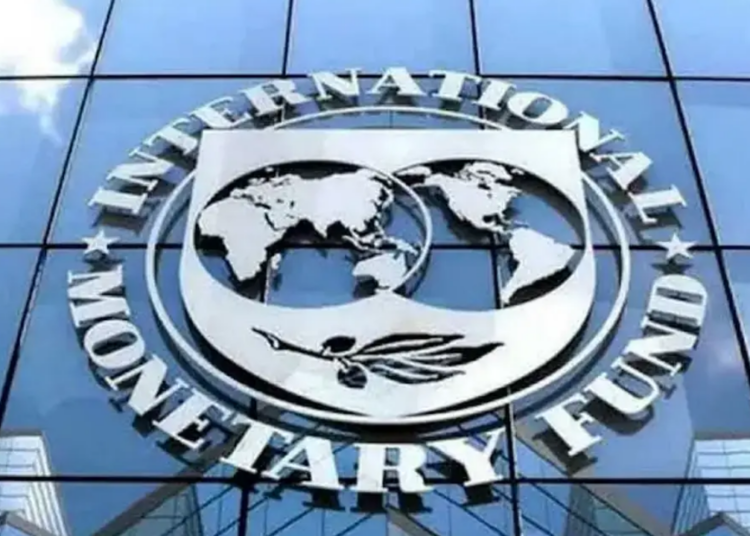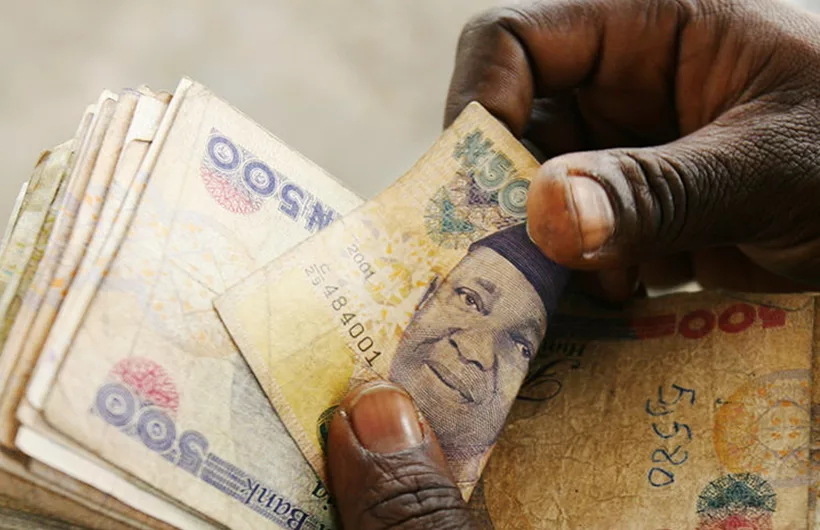The International Monetary Fund (IMF) has revised downward Nigeria’s economic growth projections for 2025 and 2026, to 3.0 for 2025 and 2.7 for 2026 as global uncertainties grow and sustained weaknesses in oil prices impact the country’s economy. This is as it sees a growing probability of a recession from per cent in October to 40 per cent.
The World Economic Outlook (WEO), for April released on Tuesday projected a slowing in global growth with Nigeria growth cut from 3.2 per cent and 3.0 per cent for 2025 and 2026 in the January issue of the WEO.
The Fund attributed the downgrade to a mix of domestic challenges and worsening global conditions, including trade tensions, slowing demand from advanced economies, and a sharp decline in crude oil prices.
The IMF in the report warned that without robust policy responses, Nigeria may struggle to maintain macroeconomic stability in the face of external headwinds. Speaking at the WEO press briefing during the ongoing IMF/World Bank 2025 Spring Meetings in Washington DC, IMF Economic Counsellor and Director Research Department, Pierre-Olivier Gourinchas, noted that emerging economies including Nigeria had been downgraded because they are “very plugged into the global supply chains. The uncertainty is leading to a positive investment in activity, and they’re going to suffer from the decline in demand for products coming from the tariffs.
This was further affirmed by IMF assistant director Global Markets, Jason Wu, while speaking pointed out that government reforms had contributed to lowering Nigeria’s sovereign credit, noted that that during a time when global financial markets is volatile and risk appetite in particular, is wavering, “this is when l we might see increases in sovereign spreads that will challenge the external picture for Nigeria as well as other frontier economies.
“Nigeria sovereign spread has increased in recent weeks as stock markets globally have declined. The other challenge, of course, is for large commodity exporters like Nigeria. If trade tensions are going to lead to lower global demand for commodities. This will obviously weigh on revenue that they will receive. So I think both of those developments would advise that authorities remain quite vigilant to these developments and take appropriate policies to come.”
In its Global Financial Stability Report (GFSR), the IMF noted that Nigeria’s return to the international debt market in late 2024, its first eurobond issuance since 2022 marked a notable shift in investor sentiment towards frontier economies, buoyed by macroeconomic reforms and improved credit profiles.
Sovereign eurobond spreads for frontier economies narrowed in 2024 and at the start of 2025, with macrofinancial reforms, progress on debt restructuring, and credit rating upgrades in several countries all having contributed to this narrowing. Examples include progress on debt restructuring in Ethiopia and Ghana, and foreign exchange market reforms in Nigeria.
“Frontier economies were able to issue foreign currency debt at relatively modest yields, with total issuance during the first quarter of this year amounting to roughly half of total issuance in 2024. Nigeria returned to the eurobond market in late 2024 for the first time since 2022 and Egypt returned in January 2025 for the first time since early 2023. Additionally, Angola obtained foreign currency financing via a total return swap with an international bank while the largest eurobond issuance in Africa during the first quarter came from Côte d’Ivoire.”
Economic growth across the Sub Saharan Africa region is also projected to slow slightly to 3.8 per cent in 2025 before rebounding to 4.2 per cent in 2026, a performance that still places Nigeria slightly below the regional average.
“For sub-Saharan Africa, growth is expected to decline slightly from 4 per cent in 2024 to 3.8 per cent in 2025 and recover modestly in 2026, lifting to 4.2 per cent. Among the larger economies, the growth forecast in Nigeria is revised downward by 0.2 percentage point for 2025 and 0.3 percentage point for 2026, owing to lower oil prices, and that in South Africa is revised downward by 0.5 percentage point for 2025 and 0.3 percentage point for 2026, reflecting slowing momentum from a weaker-than-expected 2024 outturn, deteriorating sentiment due to heightened uncertainty, the intensification of protectionist policies, and a deeper slowdown in major economies. South Sudan has a downward revision of 31.5 percentage points for 2025 on account of the delay in the resumption of oil production from a damaged pipeline.”
On a more positive note, Nigeria’s current account balance is projected to show a surplus, although declining from 9.1 per cent of GDP in 2024 to 6.9 per cent in 2025 and 5.2 per cent in 2026. This surplus offers some protection against external economic shocks for Nigeria.
We’ve got the edge. Get real-time reports, breaking scoops, and exclusive angles delivered straight to your phone. Don’t settle for stale news. Join LEADERSHIP NEWS on WhatsApp for 24/7 updates →
Join Our WhatsApp Channel










